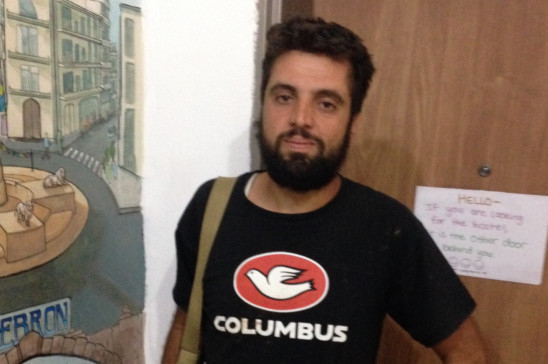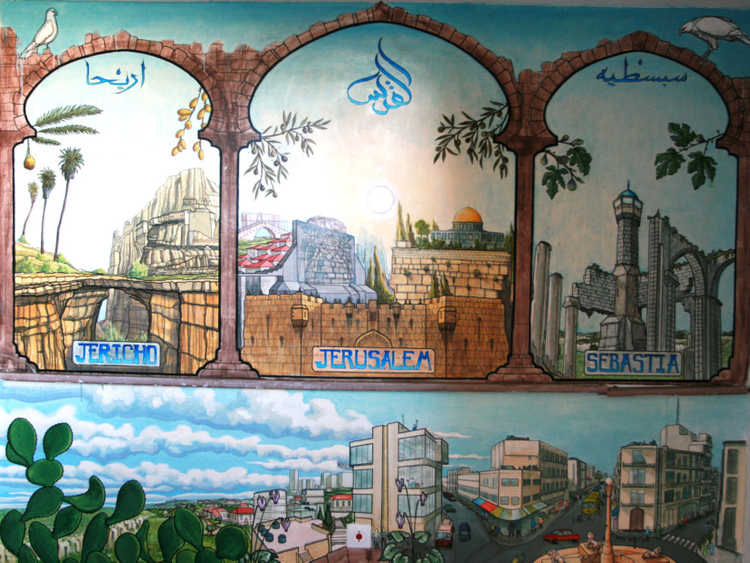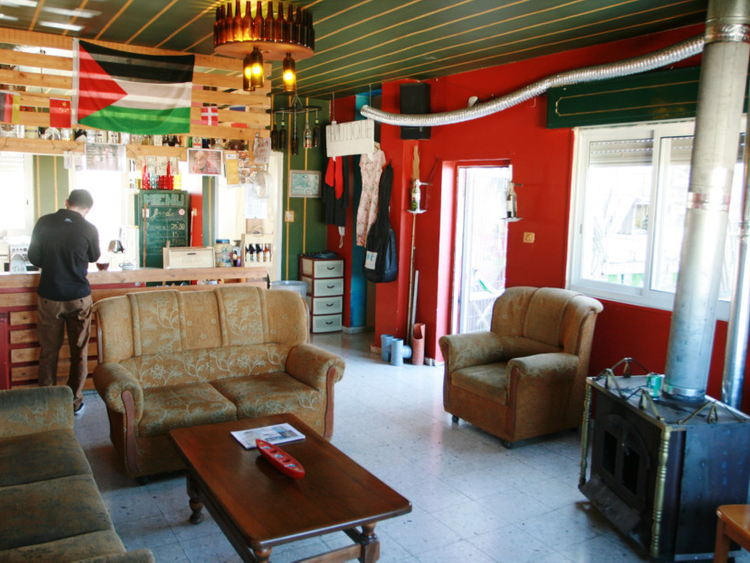
After successfully setting up the first youth hostel in Ramallah, Muhab Alami is now busy working on an organic farm and is intent on setting up a school to teach Palestinians organic farming.
I meet Alami, a young, energetic man driven by a vision, at the hostel in Ramallah. “I was working in the private sector and found no meaning in what I was doing. So I packed up and travelled to Europe and Asia for three months. During my travels, I became frustrated with people who lacked basic knowledge about Palestine. In Lisbon, the youth would tell me that I was kidding about Palestine and that it was only a country in the Bible. I had to do a lot of convincing; people were not only ignorant about this conflict, they were also equating the oppressors and oppressed,” he says.
Alami explains that the idea of conducting awareness tours to Palestine from a low-budget hostel for the youth was born on that trip. In July 2013 he partnered with his brother to open the first hostel in Ramallah by renting and equipping three flats that can now accommodate 50 persons.
“I wanted youngsters from around the world to stay with us. Accommodation, including basic breakfast, and a free tour costs only €10 [Dh38] a day. I also wished to show them and let them experience the hospitality of the Palestinians who are seeking freedom,” he says. “We arrange political tours, village tours, city tours, nature tours, hiking and other activities for our guests, most of whom are from Europe. But we also have some guests from the Americas and Asia. Our advertising is organic, mainly through Facebook and word-of-mouth. We do this with passion and love. But with our low prices, we barely meet the rent.”
To the young man, this venture is not about profit but about awareness and giving international dimension to the Palestinian story of dispossession and occupation.
Alami wears many hats. He is also the resident cook. “I love cooking and I show guests how we make our Palestinian dishes. This is cultural interaction. Monday is cooking night and sometimes our guests get involved and share cuisine from their countries, which we all then enjoy.”
Fridays are for the political tour. “We take our guests to observe the weekly peaceful protest against the wall in Bil’in. We don’t ask them to join the protest. But if they wish to, they can do so on their own accord and risk, as we cannot predict what the Israeli soldiers might do.”
On Saturdays, the guests are taken to Hebron and to the Old City, where we work closely with the local organisation Youth Against Settlements. They are Palestinians experiencing the conflict daily. They voluntarily escort children to school. The donations our guests make to the organisation go directly to the affected people.”
The Ramallah Hostel also caters to those who wish to learn Arabic, with lessons being held on Sundays.
During the week, Alami is on his organic farm in the village of Bil’in. “This started by sheer coincidence, although it was a dream of mine. We had an American-Palestinian guest, Mohammad Abu Jawad, who had come to visit his parents in Gaza. He was stuck in Ramallah for a year, and stayed with us. Jawad had studied organic farming in the US; he nurtured our interest and we tapped his knowledge. He left a year later, I believe he cannot come back to his homeland,” he says.
“Palestinians support the Israeli economy. We are a consumer community, not so much a producer community ... but that is changing fast. The landlord gave us his 16-dunum [1.6-hectare] farm for free for five years to see what we could do with it. He is very happy with the work we are putting into it. At present, we are only using 4 dunums.”
In the last season they harvested tomatoes, cucumbers, lettuce, onions, chillies and bell peppers. Now, they are preparing the soil for winter.
The products are sold directly to customers who pay 21 weeks in advance for boxes of organically grown Palestinian vegetables. Alami adds that they also supply to the hostel.
Alami’s next project is to set up a small school to teach villagers how to do organic farming, but the whole exercise is fraught with danger as the land is in Area C of Palestine, which means that Israel has full security and administrative control of it.
He is nevertheless optimistic. “Any small family can start this. The hardest part is to begin. Our model is CSA, or Customer Supplied Agriculture, which is focused and has to work. We have already designed portable greenhouses so as to avoid demolition orders.”
Things haven’t been free of obstacles. “After six months of farming, we received a demolition order for the fence and greenhouse on the farm. We are going to fight it in court. Anyway, we have received four demolition orders since we began. This makes us more determined to fight and it energises us in our ongoing struggle,” Alami says.
Tired after a long day at the farm, Alami takes me on a tour of the hostel, where he has a room for himself, all with a sense of pride in his achievement. He points to the murals painted his guests. “They have left their fingerprint in Palestine.”
Another project that Alami is excited about is Zikak, which means alley. “We invite international artists to see the alleys of refugee camps and paint the walls there. Locals are liking it and they get to interact with the artists. We want to make this bigger and share it with the rest of Palestine,” he says.
“Several volunteers and tourists are being refused entry by the Israelis at the airport, but we will continue doing what we have begun regardless of what might happen. That is the reality we live in and the challenge we face daily,” he says.
On that positive note, I take leave of Alami and step out of the hostel into the autumn evening in Ramallah.
Rafique Gangat, author of “Ye Shall Bowl on Grass”, is based in Occupied Jerusalem.














